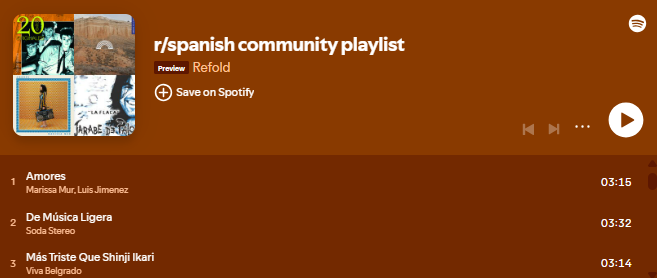What’s the hardest part of learning Japanese?

Let’s analyze various parts of learning Japanese and the common difficulties with them.
Kanji

Learning Kanji can be one of the first challenges for those starting to learn Japanese. Many people find these characters difficult. They can be, especially if you approach them the wrong way. This is a common mistake among beginners. However, once you become familiar with Kanji, they can be a powerful tool. They make it easier to learn new vocabulary.
Efficient vs. Inefficient Methods for Learning Kanji
Inefficient Methods:
- Focus on writing characters by hand.
- Learn various readings for each Kanji without context.
Example:
Take the character 「生」. It has at least 17 different readings. Even if you memorize all of them, how will you know which one to use? You won’t know without understanding the vocabulary that uses this character. Learning multiple readings for one Kanji is often a waste of time.
Efficient Methods:
- Start by recognizing the most common 500 characters. This helps you get used to their shapes.
- After this, you don’t need to study Kanji separately.
You can learn to read Japanese by expanding your vocabulary through reading. As you learn new words, you will naturally encounter new characters. The process is straightforward:
- Learn a word.
- Understand its reading and meaning.
By treating each word as a separate unit, you will improve your listening skills and reading ability in Japanese.
If you want to learn how to write Kanji by hand, wait until you can read Japanese novels with ease. This usually takes a couple of years of focused immersion. By then, you will have a solid foundation, knowing 3,000 to 4,000 characters through various words that use them. At this stage, learning to write the characters from memory will be much simpler.
For a list of words that use 「生」, use Yomichan to look up the readings. This will help you confirm that each reading is unique, making it easier to remember each word as a separate entity.
- 生い茂る
- 先生
- 生き物
- 生クリーム
- 生涯
- 芝生
- 生憎
- 生まれる
- 生え変わる
- 瓜生
- 弥生時代
- 柳生
- 生す
- 生る
- 壬生
- 生地
- 平生。
Vocabulary

Learning Vocabulary in Japanese
Learning new vocabulary is a crucial part of mastering a language.
To understand nearly all Japanese content, you need to know about 30,000 words. That’s a lot!
However, if you focus on the most common 2,000 words, you can achieve 70-80% comprehension of spoken Japanese.
Recommended Resources
To help you get started, consider these resources:
These pre-made Anki decks cover essential vocabulary systematically. Alongside them, use a basic grammar guide like The Dictionary of Basic Japanese Grammar.
The Challenge of Advanced Vocabulary
The remaining 20-30% of vocabulary contains all the details. Learning these words requires time spent reading, listening, and studying Japanese.
Mining Vocabulary
After you finish the pre-made decks, the best way to learn new vocabulary is to ‘mine’ words and grammar from materials you enjoy. This approach makes learning more engaging.
Using a frequency list can also help you focus on words that will boost your comprehension the most.
Anki Card Types
When using Anki, you can choose between two types of cards:
- Sentence Cards:
- Show words and grammar in context.
- Help with retention but take longer to review.
- Vocabulary Cards:
- Great for single-meaning words like nouns and some adjectives.
- Quicker to review but may have lower retention due to lack of context.
While learning vocabulary is one of the longest parts of studying Japanese, you can simplify the process. Just remember: Read, Anki, and Listen.

Grammar

Understanding Japanese Grammar: A Simple Approach
Japanese grammar can seem mysterious and intimidating. However, it is actually straightforward and easy to learn with the right approach.
What Should You Avoid?
To start, let’s discuss what not to do:
- Avoid grammar tables and workbooks.
These methods can waste your time. They do not help you understand the purpose of grammar study.
What is the Purpose of Studying Grammar?
The main goal of studying grammar is to improve your comprehension. It helps you understand what you read and hear.
- Grammar study is not for:
- Formulating sentences in your head
- Translating between Japanese and English
Instead, grammar study introduces you to new sentence patterns. This exposure helps you understand content better and reduces the need for dictionary look-ups.
Using a spaced repetition system (SRS) like Anki can make your study more efficient. It helps you learn and remember what you encounter while immersing yourself in Japanese.
Should You Study Japanese Grammar?
Yes! Studying grammar is essential for improving your understanding of written and spoken Japanese.
How to Study Japanese Grammar Effectively
- Start with a Quick Grammar Guide:
- Sentence Mine:
- After reading the guide, use The Dictionary of Basic Japanese Grammar.
- Create Anki flashcards for new grammar patterns and vocabulary.
- Using sentence cards is ideal because it shows new words and grammar in context.
- Read a Lot:
- The best way to learn grammar is through reading Japanese content.
- If you encounter unfamiliar words, use a dictionary for reference.
- J-J dictionaries like 大辞林 or 新明解 can help you look up grammar patterns.
For Intermediate Learners
- Read 国語の文法:
This resource teaches you to think about Japanese grammar as it is taught in schools in Japan. - Explore JLPT文法解説まとめ:
This website covers grammar from N5 to N1 and provides multiple example sentences for each pattern.
Sentence mine this site and create flashcards for new patterns and vocabulary.
Practice Quizzes
To reinforce your learning, try these quizzes on Discord:
- JLPT N2 Grammar Quiz:
k!quiz gn2 nd 20 mmq=2 - JLPT N1 Grammar Quiz:
k!quiz gn1 nd 20 mmq=2
By following these steps, you will find that Japanese grammar is much easier to grasp than it seems!
Listening Comprehension

Listening comprehension is one of the hardest abilities to work on when learning Japanese, solely because it requires so much time investment — much more than any other skill here. You may be able to read a sentence, but if you hear the same sentence in audio form, you might have no clue what it means.
Sorry to tell you, but there isn’t any solution to this problem other than brutal force. You simply have to pour in a lot of hours into listening to raw Japanese: anime, drama, movies, podcasts, YouTube videos, and audiobooks. Pick your poison and start listening to raw Japanese whenever you have the chance. Don’t zone out! “Passive” listening isn’t “passive” at all: you must try to pay attention and understand your target language! Leaving Japanese on in the background or while you sleep as noise (and ignoring it) is not going to help your listening ability at all.
So I just said to listen to a lot of raw Japanese audio, but what about using Japanese subtitles?
Go ahead! I am a big fan of using Japanese subtitles to learn from anime, dramas, movies, etc. In fact, this was a vital component of my routine when I was first learning Japanese and beginning to build my vocabulary count into the thousands. Using Japanese subtitles allows you to look up unknown words and grammar while watching and clear away ambiguity while watching your favorite shows. I highly recommend using Language Reactor so that you can use Yomichan to look up things as you watch Netflix/YouTube. I use ShareX (Windows only) to add sentence audio and images to my Anki cards that I create while watching Japanese content.
Next up is “Intensive Listening”, a technique that you can utilize to bridge the gap between your listening and reading ability, pushing your listening ability to the next level.
- Watch a show with the JP subtitles blurred out (use Language Reactor in Netflix). This allows you to listen to the show one line at a time.
- If you don’t understand the audio as you watch, then you can check the Japanese subtitles simply by hovering over them. You can see if there was an unknown word preventing you from understanding, or if your listening ability is just lagging behind your reading ability (if you can perfectly understand with JP subtitles, then this is the case).
- In the second case, you can replay the same audio line multiple times until you can hear the line clearly and understand it.
- In the first case, you can make audio sentence cards for Anki using ShareX.
- After you finishing watching the episode, download the audio (or see if it is already uploaded somewhere) and listen to it repeatedly for about a week. This is great “Passive” listening material.
Bonus Tip! Listen to the audiobook of books in order to take your listening ability to the next level. Reading the book and then listening to the corresponding audiobook allows you to mine new vocabulary and grammar and get repetition of content, allowing you to solidify and absorb the things that you learned while reading.
*Matt has a great video on developing Listening ability here: Why you still can’t understand your TL.
Reading Comprehension

Reading comprehension is easier to develop than listening skills.
Your reading ability mainly depends on your vocabulary. Books often use a wider and more complex vocabulary than spoken Japanese. There’s no easy way to tackle your first novel (or few novels). It requires determination and effort.
Here are some tips to improve your reading skills:
- Read daily: Spend an hour or two reading. Focus on novels, light novels, and visual novels.
- Go at your own pace: Reading allows you to take your time. You can re-read sections and look up unfamiliar words and grammar easily with Yomichan.
However, you will encounter many unknown words when reading authentic Japanese materials, especially novels.
Should you look up every unfamiliar word? Or limit how many words you check per page?
Here’s my suggestion:
- Look up as many words as you feel comfortable with based on your energy level.
- If you’re motivated, check words more often.
- If you’re tired, skip some words and keep reading if they don’t seem important.
Over time, you’ll find that new words appear less frequently. At that point, looking up words won’t feel overwhelming.
Now, let’s talk about “speed reading.” This is mostly a myth. Native speakers read about 30,000 to 40,000 characters per hour. Reading faster than this usually means skimming, which can lead to losing comprehension.
As a language learner, focus on understanding the text. Your reading speed will naturally improve as you read more in Japanese.
Additional tip: Don’t forget to read news articles, Wikipedia, and blogs too.
Check out Matt’s great video on Why You Should Read Novels.
Speaking Ability

The time has come. You need to talk to Japanese people, whether out of interest or necessity. But can you really learn to speak just through immersion?
Don’t worry, fellow immersion learners. I’ve discovered that speaking ability is closely tied to listening ability. After about 18 months of intense immersion learning (around 3000 hours with Anki), I was able to have conversations with native speakers without too much trouble. If you understand a wide range of your immersion content, you should have a similar experience.
I can hear your concerns:
- “I can’t wait a year and a half to speak!”
- “That’s too long!”
You can start speaking to native speakers much earlier. It may not be a smooth transition, but you can begin whenever you feel ready.
Don’t worry about fossilization or “early output.” As long as you get a good amount of input every day, you’ll be fine. Speaking with natives can boost your motivation and test your language skills.
When you start speaking, you’ll notice your weaknesses in understanding and production. You might misunderstand your partner or make grammar and vocabulary mistakes. These are signs to focus on specific areas during immersion. Pay attention to the correct forms of phrases when reading and listening. This will help bridge the gap between your input and output skills.
Starting to speak creates a positive feedback loop:
- You learn from your immersion.
- You use your speaking skills with natives.
- You notice your weaknesses (either by yourself or through native corrections).
- You return to immersion to address those weaknesses.
This cycle will help you improve over time.
Accent

Pitch Accent in Japanese Learning: A Controversial Topic
Pitch Accent is one of the most debated topics in learning Japanese. Here are some common opinions:
- “Pitch Accent is useless as long as I can be understood.”
- “Pitch Accent is absolutely necessary if you want to sound like a native speaker.”
- “You should learn Pitch Accent from day one. Avoid reading until you are fluent to prevent bad habits.”
- “You can fix your accent later, just like Matt, Dogen, Darius, and many others did.”
There are many strong opinions on Pitch Accent. I will keep this brief because I am working on a more detailed post about it. This upcoming post will guide you on how to develop a natural, native-like accent for free (though it will require time and effort).
If your goal is to sound like a native Japanese speaker, be prepared to invest significant effort into your pronunciation, accent, and intonation.
Writing Ability

I’ll be straightforward: I don’t see the value in handwriting Kanji. It’s the least useful skill on my list. Instead, focus on:
- Reading
- Listening
- Speaking Japanese
These activities are far more beneficial.
On the other hand, typing in Japanese is very useful and easy to learn. It’s mostly phonetic, making it accessible.
When you’re starting out, writing essays, texting, or tweeting can improve your skills. It allows you to:
- Take your time to organize your thoughts
- Look up word and phrase differences
I recommend using platforms like:
As I mentioned in the Speaking section, writing helps you assess your language level and identify areas for improvement. Use writing to:
- Communicate with native speakers
- Share your thoughts and opinions
- Receive corrections from natives
This approach will help you grow through immersion. That’s all for now, good luck with your Japanese journey.

Like what you see?
Sign up now and we'll deliver even MORE amazing content like this right to your inbox!
- Receive our exclusive 6 SECRETS to language learning success email course.
- Stay motivated with weekly emails overflowing with helpful language-learning tips, tutorials, and more!
- Get behind the scenes access into the inner workings of Refold!









